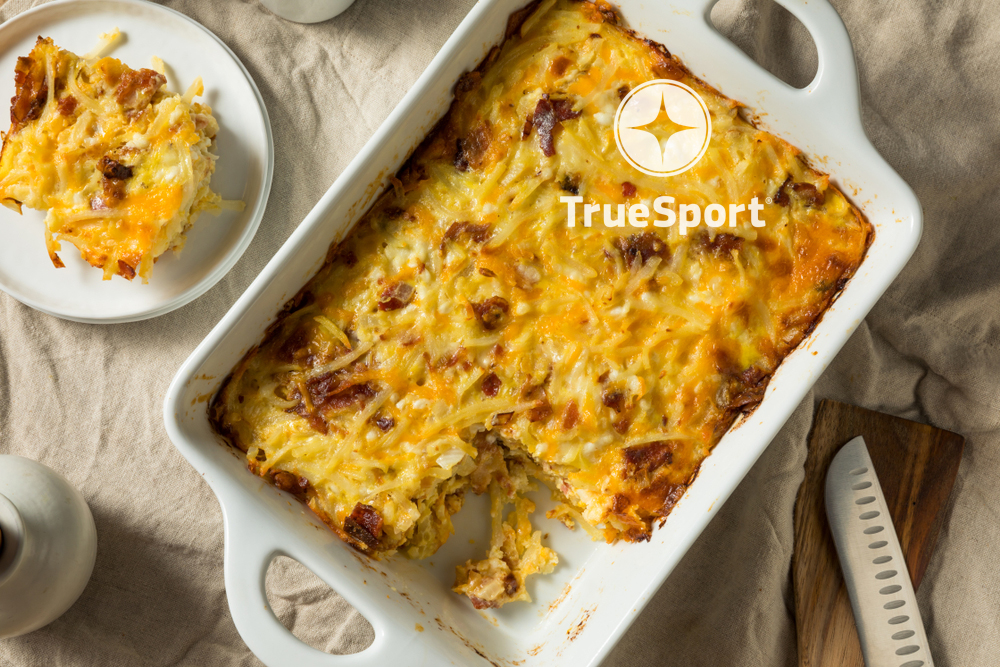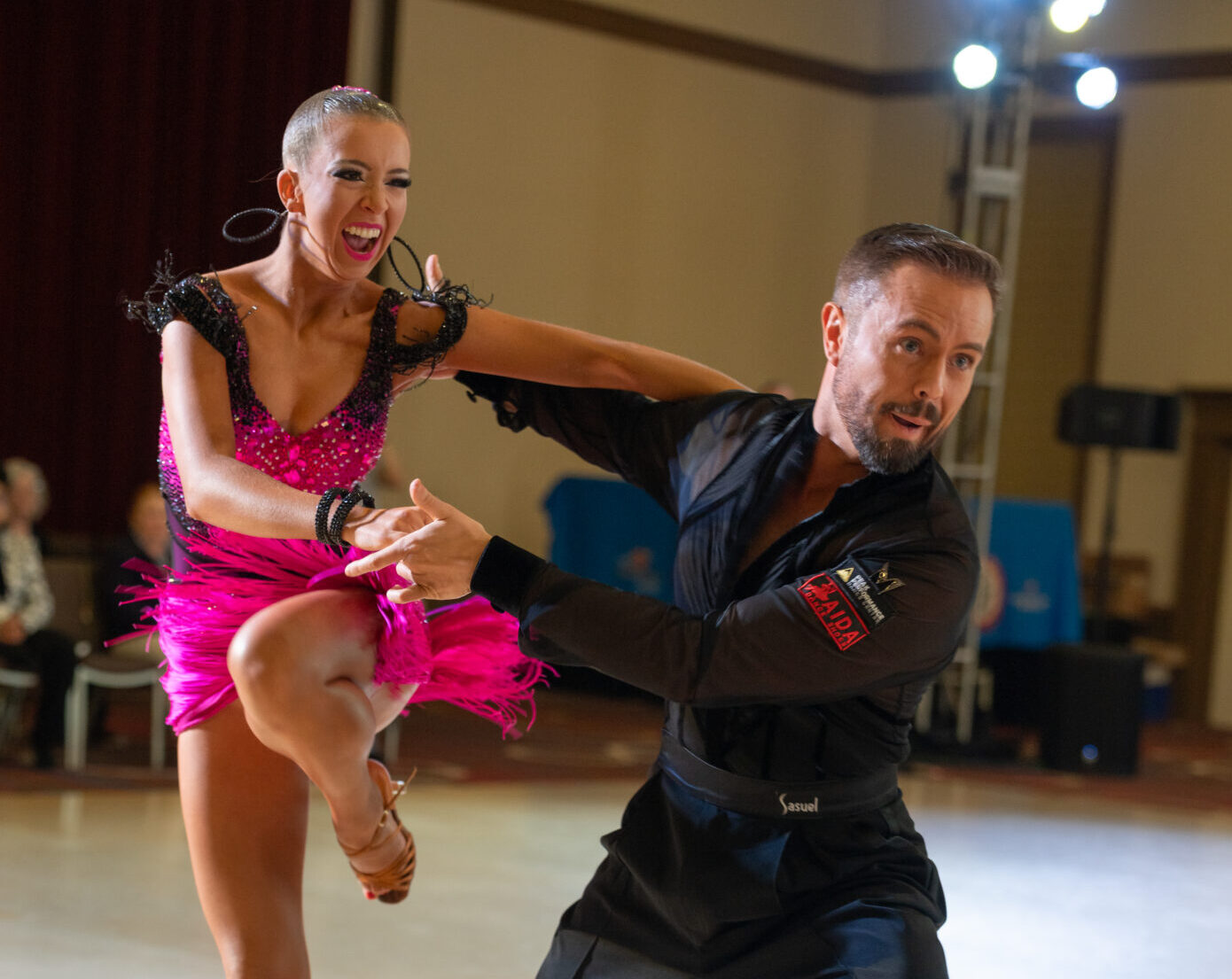Breakfast is still the most important meal of the day, especially for busy athletes balancing sports, school, work, extracurriculars, and social activities. And unfortunately, breakfast is also an easy meal for athletes to skip, especially when the day starts with an early conditioning session. In other cases, your athlete may not have a large appetite in the morning, or won’t wake up early to make time for a seated breakfast.
Here, TrueSport Expert Kristen Ziesmer, a registered dietitian and board-certified specialist in sports dietetics, is sharing a few tips to help ensure that athletes get the nutrients they need in the morning so that they avoid under-fueling.
Breakfast Basics
Why does breakfast matter for athletes?
While research has gone back and forth over the years when it comes to the importance of eating breakfast, for athletes, it’s an important meal. “We have seen research that shows that people who eat breakfast have better daily outcomes as well,” Ziesmer says.
Ziesmer explains that skipping breakfast, especially for an athlete, will typically mean that they’re unable to keep up with their caloric needs since their opportunities to eat are limited during the day. If an athlete trains early in the day, they may not be able to eat another meal until lunch, which means not only are they training while under-fueled, but they’re also missing the chance to recover.
Make breakfast simple—but nutrient dense
“Ideally, an athlete is adjusting their bedtime to get adequate sleep while still waking up an hour before they have to leave the house so that they have ample time to actually eat something,” says Ziesmer. However, many athletes don’t want to sit down and spend 30 minutes eating at the kitchen table in the morning—they’d rather get an extra 20 minutes of sleep and take their meals with them. If an athlete isn’t a morning person, that means pre-planning breakfast options that can be made ahead of time and eaten on the run.
Breakfast also shouldn’t be a bowl of sugary cereal with non-dairy milk, or a pastry with a caffeinated drink, says Ziesmer. Often, the ‘quick grab’ breakfast options tend to be almost entirely made up of simple carbohydrates. While these carbohydrates are important, athletes also need protein and fiber in a healthy breakfast in order to boost recovery and feel satisfied throughout the day. Otherwise, they risk a quick boost of energy from a high-sugar breakfast followed by a crash.
Look for protein plus carbohydrates
“If you’re just getting carbohydrates, especially quick digesting carbohydrates, it’s not going to stay with you for very long,” says Ziesmer. “You’re going to start to feel low energy, maybe develop a headache, and will struggle to think straight. Adding protein helps avoid that.”
Even if you’re shopping for frozen breakfasts, you can still find options that are more satisfying and healthy than others, says Ziesmer. “I generally recommend aiming for 20 to 25 grams of protein at each meal, so look for that on the nutrition labels as you’re shopping for breakfast options,” she says. “Often, there are options that are more protein-dense, whether you’re looking at boxes of pancake mix or frozen waffles or yogurt.”
Add fiber and healthy fats
Your base of protein and carbohydrates can be dressed up with extras, says Ziesmer. She likes adding a dollop of peanut or almond butter on top of most sweet breakfast options, from pancakes to smoothies, to add healthy fats. And she’ll add a side of berries or other fruit to increase the fiber and micronutrient content of the meal. For savory dishes, using olive oil to cook is a fast way to add healthy fat, and sneaking vegetables into any egg-based dish is a great way to boost fiber intake. The healthy fats and fiber aren’t just for taste: They help an athlete stay fuller for longer.
4 Quick and Healthy Breakfast Options
- Overnight Oats
Overnight oats are a staple for Ziesmer. She recommends assembling single-serve jars of steel-cut or rolled oats with your preferred toppings, which can include nuts and seeds, dried fruit, apples, bananas, berries, nut butter, maple syrup, honey, and cinnamon. Store in the refrigerator if using fresh fruit. Each night, add water, milk, yogurt, or nut milk to one container, and leave it in the refrigerator overnight. The oats will soften with the liquid, and in the morning, these overnight oats can be enjoyed cold or warmed up in the microwave.
- Breakfast Casserole
Ziesmer’s go-to for athletes who prefer something savory in the morning is a breakfast casserole that can be easily dished out and warmed up in the microwave for a one-plate breakfast. Coat the bottom of a casserole dish with olive oil, then layer fresh or frozen shredded hash brown-style potatoes and chopped vegetables that your athlete likes in an omelet, like peppers, spinach, and onions. You can even add breakfast meat like ground sausage (or a tofu version) or black beans for added protein. Then, crack eggs over top. Ziesmer suggests at least two eggs per day, so for Monday to Friday, you would use 10 eggs total. You can also top it with shredded cheese. Bake at 350 degrees until the eggs have set, and then cut into slices to use daily. You can also make these even easier as single-serve options by using a jumbo-size muffin tin. Again, you can quickly warm this up and be on the road in minutes—with a full complement of carbohydrates, proteins, and healthy fats.
- Breakfast Smoothie
For an athlete who truly dislikes breakfast, a liquid option may be easier for them to stomach. Blending Greek yogurt, frozen berries, a banana, a scoop of peanut butter, and a drizzle of maple syrup with a sprinkle of cinnamon can be a simple, easy option for an athlete in a hurry.
- Speedy Classic Breakfast
When her kids are craving a hearty breakfast on a busy day, Ziesmer has a secret trick: frozen pancakes and microwave eggs. For athletes, frozen pancakes or waffles are a great source of quick carbohydrates and can easily be paired with a protein. She’ll toast the waffles and top them with yogurt, berries, and a bit of maple syrup to add protein, fiber, and sweetness. Then, she uses a nonstick spray in a coffee mug before breaking two eggs into it and scrambling them with a fork. She microwaves them on high for 30 seconds and quickly has a side of scrambled eggs to go with the pancakes for the perfect big breakfast.
Takeaway
Breakfast remains an important part of an athlete’s day and is a meal that should be prioritized, even when an athlete is busy. Offering nutrient-dense breakfast options that you can eat on the run can help prevent under-fueling throughout the day.






















